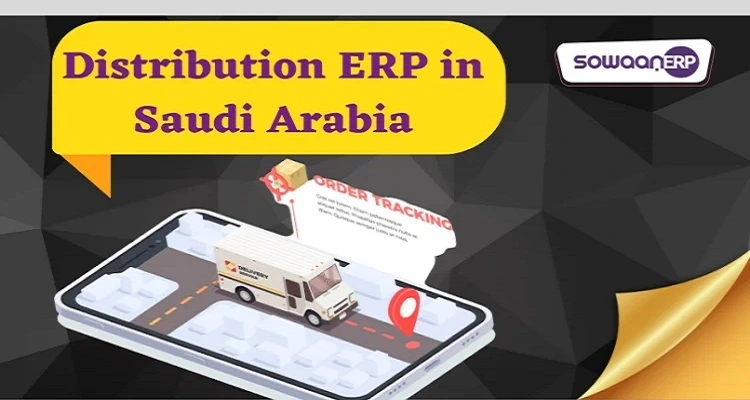
How top ERP providers in Saudi Arabia secure ERP systems?
Your ERP system is the central hub of your business, building mission-critical data across all of your company’s departments.
Keeping up with the most recent threats and properly securing your distribution ERP in Saudi Arabia can be a real challenge for SMEs (small to mid-size businesses). Chances are you don’t have resources committed to IT cyber security the way larger firms do. Furthermore, a lot of IT experts lack ERP security expertise. In the end, this makes smaller businesses more sensitive to cyber-attacks; all data leakage involves SMEs, according to research from Information security report.
We advise beginning with these ERP security best practices to reduce your risk, regardless of whether you are currently undergoing distribution ERP software in Saudi Arabia implementation or you have been operational for some time.
Why ERP safety is essential?
The most important data for the entire company may be exposed if even one component of your ERP system is hacked. This could have a big effect on your company, like:
- Interrupting the operations of your business
- The price of data recovery and operational staff repair
- If your data is corrupted, lost, or altered, repair costs might arise.
- If customer data is compromised, you risk losing customers’ trust and damaging your company’s competitive advantage.
Whereas the risk is evident, adequately safeguarding your ERP system is a daunting task. Top ERP providers in Saudi Arabia are concerned with technology, connections, software platforms, integration points, and database security. Because of this, Businesses are more likely to be susceptible since general-purpose security measures are inadequate. You require professionals who are familiar with cloud applications, web services, and ERP databases.
-
Recognize your weak spots
Getting a detailed image of your ERP environment will help you discover potential weak places that need repair. Including procedures, master data, infrastructure, storage networks, interfaces, and connectivity points with other applications, take into account all components of your distribution one ERP in Saudi Arabia.
If you’ve identified any potential weaknesses, weigh the consequences of a breach.
- Would computer hackers take the whole system down?
- Will there be any noticeable effects, such as a little invoicing delay, or will there be financial losses?
- Make sure you comprehend how finest applications are secured before integrating with them.
-
Implement strong security guidelines
Setting sophisticated password restrictions and enforcing regular password changes are crucial to ERP security, no matter how frustrating it may be for your employees. The most recent advice from Cyber News is provided below:
- A combination of capital and lowercase letters, numerals, and unique symbols
- Lacks recognizable keyboard shortcuts
- Each account has a different password.
-
Use various identification
You probably use Facebook and your banking as well as multi-factor authentication, which is becoming standard for web applications. Nevertheless more than 40% of businesses continue to not implement all potential ERP entry points.
Multi factor authentication adds an additional degree of security on top of those strong passwords by requesting users to validate their authenticity via text or email or an app. Two-factor authentication is generally initiated directly from the login page for public cloud ERP software like SowaanERP. The remote desktop or remote app login might have a multi-factor authentication process attached to it if your ERP system is hosted on-premises or in a private cloud.
-
Keep up with new information
An elevated security risk might be caused by outdated software. Establish a policy to frequently apply updates, whether they are for your on-premise ERP systems for universities in Saudi Arabia, the Windows operating system, or another application that interacts with your ERP. Cloud software upgrades are frequently carried out automatically by the manufacturer, allowing you access to the most recently updated software.
How to Secure Your ERP System?
Security for a distribution ERP in Saudi Arabia or a cloud solution, whether private or public, is a shared duty between your business and the public cloud. This is the way a divide typically looks, but make sure you both understand your roles by speaking with your provider.
You’ll be in charge of maintaining user authorizations, enforcing password regulations, educating workers about security procedures, and updating software on a regular basis.
Your cloud service provider will also take care of the following:
- Protection of their data centers technically
- Best practices for interruption and backup
- Data protection
- A number of different factors
- System Surveillance
Conclusion
You are in charge of all security precautions, backups, data recovery, and system monitoring if you run an on-premise ERP package. Since few SMEs have the internal capacity to handle this effectively, many are switching to a private cloud solution.
